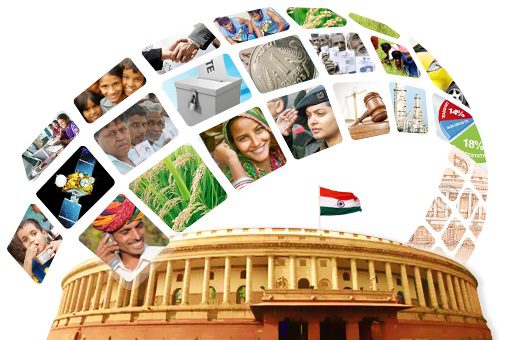It’s important to revise electoral strategies, reasons Navodita, our Associate Editor. Here’s an exclusive report for Different Truths.
The recent legislative assembly elections across five states of Rajasthan, Madhya Pradesh, Chhattisgarh, Telangana and Mizoram sounded the trend for months to come in 2019 and the parliamentary elections. The people’s verdict was clear – Congress is still very much in the rat race, what’s more Rahul Gandhi name has even been proposed to be the leader of the grand alliance by none other than Stalin. Yes, unfortunately ‘dynasty rule’ among political parties (more so in regional than national parties) is a big disappointment as that undermines the very notion that the system is ‘democratic’ or that the electorate is choosing ‘from among the masses’. That still isn’t happening!
In order to understand the primary issues around elections, campaigning and voter behaviour, let’s begin first with what some experts have to say. Former Chief Election Commissioner O.P. Rawat said the Election Commission is working in a big way on improving its mechanism for conduct on social media platforms and for this purpose it has interacted with Google and WhatsApp. Besides him, there are others also who have felt the need to get a revised legal framework, involving social media, abuse of money and other emerging threats like those coming from the usage of mobile phones. Section 16 of the Representation of the People Act (which bars election related publicity in the last 48 hours leading to voting) only talks about television or cinematograph. However, these days, it’s all available on your mobile. There needs to be a framework or a committee with recommendations so that such emerging and futuristic needs maybe reviewed and realigned to the changing times.
Another important electoral reform relates to the money in which if a ceiling on political expenditure is brought in, it will improve the expenditure and campaign finance regime. It should be more transparent with a level-playing field, usually only the ruling party is getting everything, almost 90%. For democracy to survive and thrive, not only a very effective ruling party is required, but an equally effective Opposition. So, we should have something in place which regulates these things in a manner that is more conducive to democratic processes.
Yet another important measure needs to be taken up vis-à-vis media. Fake news on social media affects voting behaviour in a big way and right now the only mechanism is Section 126 and Election Commission instructions on paid news. EC needs to bring in a stronger mechanism for conduct on social media platforms. Campaign finance is also a major issue. This should be available through transparent means. Furthermore, there are many challenges because of emerging technological developments, more industrialists, and other factors including social media.
In these elections (Telangana, Rajasthan, Madhya Pradesh, Mizoram and Chhattisgarh) some leaders of the BJP are even saying that NOTA was the main reason for its defeat in the elections. However, had the Congress been in the BJP’s position, it, too, would have blamed NOTA. Thus, NOTA is a convenient political scapegoat. Even voters have started to believe that NOTA has become a very important factor in Indian elections. Another factor is that elections may come, and elections may go but some issues remain forever. There was almost 80% polling in Mizoram where Bru refugees voted at special booths established by the Election Commission. In Rajasthan, issues raised by politicians may have been a good electoral win for some; yet others like the plight of Sahariyas is still as bad. The Sahariya tribal community of Shahbad region in Baran district, which recorded 47 starvation deaths during the 2001 drought, waits for concerted welfare measures that could take them out of poverty, unemployment and malnutrition. Though politicians have made a promise against starvation, the tribe’s economic condition is yet to reach a reasonable level.
However, some believe that in the elections, people voted for change. While some people may think that the Assembly elections had proved that the BJP government’s plan to communalise the voters was no longer working, it may be said that Mr. Rahul Gandhi’s ‘temple yatras’ changed things for the better. His public display that he is a janeudhari Hindu attracted him to the people rather than the age-old policy of appeasement of the minorities.
Hence in the months to come, it would be better that both Congress and the BJP rework their strategies to put up a good fight and win the people vote. On the one hand, the Muslim card may not play well in favour of the Congress, the inept
© Navodita Pande
Picture from the Internet






 By
By
 By
By

 By
By